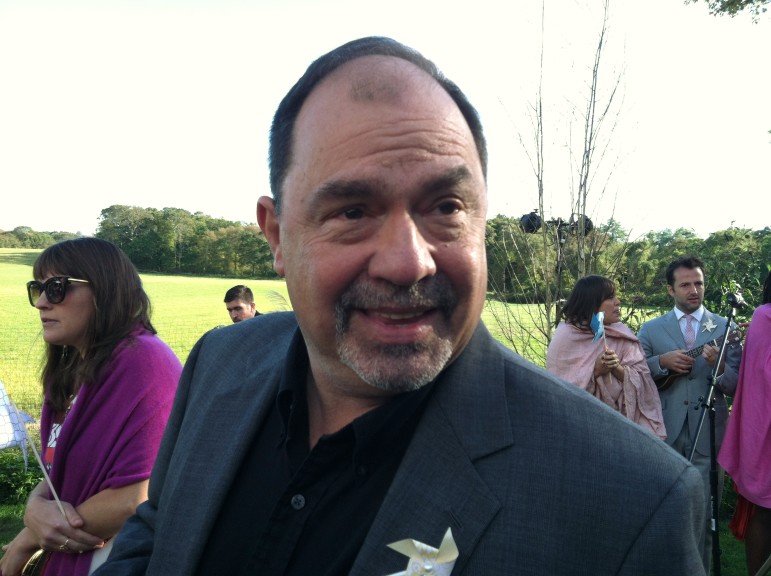
Jay Small in 2012
From the early 1980s through the ’90s, there weren’t many New York City protests involving community justice issues where you couldn’t spot – or more likely, hear – Jay Small. A community organizer from Brooklyn with a talent for picket line chants, Small worked as an organizer at Brooklyn housing groups before being named executive director of the citywide neighborhood organization, the Association for Neighborhood and Housing Development, in 1992.
Small, 71, died February 13 at a rehabilitation center in Flatbush where he was trying to recover from the most recent in a series of health emergencies stemming from a lifelong battle with diabetes. An ever-garrulous and upbeat presence in the city’s community housing movement, Small worked at the People’s Firehouse in Williamsburg, and later served as executive director of Flatbush East Development Corporation where he helped pressure banks to keep their doors open for local neighborhood lending, and helped tenants organize against bad landlords.
In a bid to help give tenants and community residents greater political clout, Small helped found an early political action group aimed at helping to elect progressive state and local officials. It was at meetings of TenPac, as the group was called, that he met his future wife, Carol Smolenski, a fellow community organizer from Sunnyside. He leaves behind their daughter Hannah, 21, a senior at the University of Massachusetts, and another daughter from his first marriage, Molly, 39, an events producer who also lives in Brooklyn, along with a granddaughter, Stella Ives.
As director of ANHD at a time when the administration of Republican mayor Rudy Giuliani was often at loggerheads with local neighborhood groups, Small was a vocal point man in battles with City Hall over affordable housing. The city’s housing agencies were “being systematically purged of any knowledge and talent,” he told then City Limits reporter Glenn Thrush in 1997. “And it indicates a lack of interest on the administration’s part.”
He brought a long history of activism and advocacy to the job. He was a student at Erasmus Hall High School in Flatbush when he joined the student chapter of the Congress of Racial Equality, participating in protests against discrimination. In 1968, he was expelled from Brooklyn College after taking part in a sit-in aimed at forcing the college to admit more black and Puerto Rican students to the campus. After his dismissal, he shifted his organizing focus from classroom to workplace. Over the next few years, he worked as a clothing rack pusher in the garment center and as a laborer in industrial presses in Chicago, among other jobs. His proletarian bent stemmed from both economic need and ideology: In the 1970s he joined one of the many Marxist groups that emerged from the years of student protest.
But he was never much good at rigid dogma. His stronger talents were the quips, puns and yarns he sprinkled through the boundless discussions and debates in which he reveled, along with occasional plucking at the guitar he had once played as a member of the Shaky Deal Jug Band in the early ‘60s.
After stepping down as head of the Association in 1998, Small did occasional consulting for local groups but health problems slowed his activism. He returned to school, receiving the CUNY BA he’d missed out on decades earlier and took courses on history and planning at the CUNY graduate center. Two weeks before his death, a heart attack nearly felled him while a patient at Mt. Sinai Hospital in Manhattan. Doctors didn’t expect him to recover, but Small rallied, surprising everyone other than himself.
He wasn’t going anyplace, he assured them. Hours before his death, he was happily expounding to family, friends and anyone willing to listen on the unlikely success in the Democratic primaries of a fellow seventy-plus-year-old Jewish socialist from Brooklyn with a gift of gab.


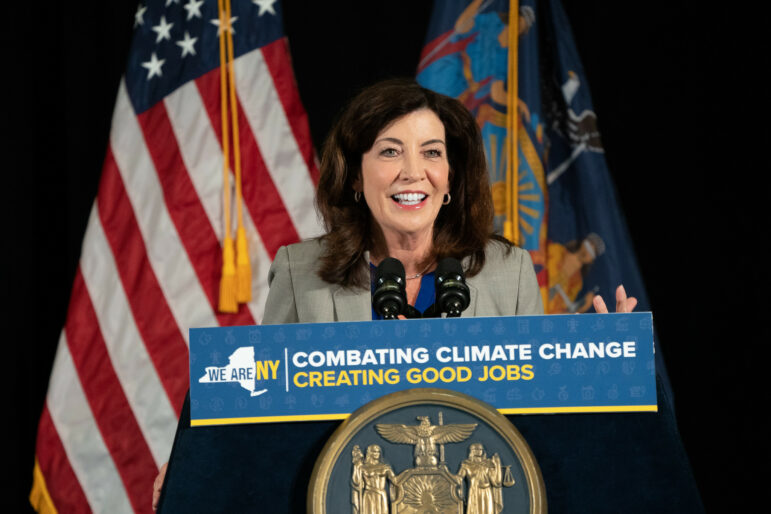

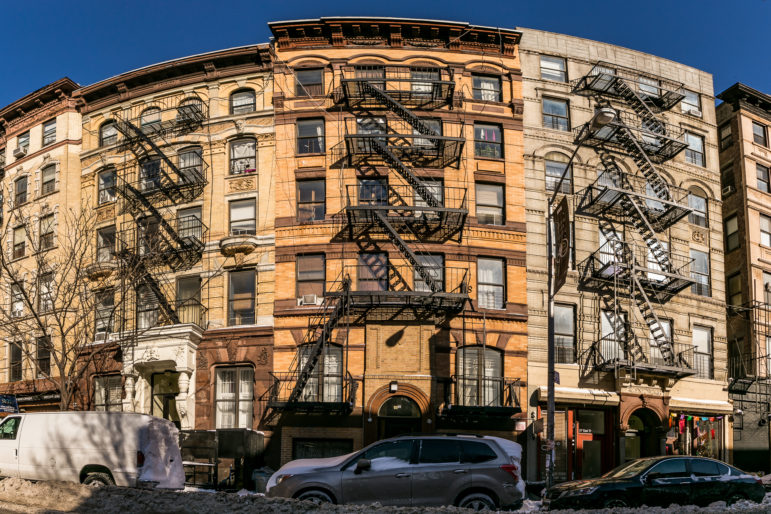
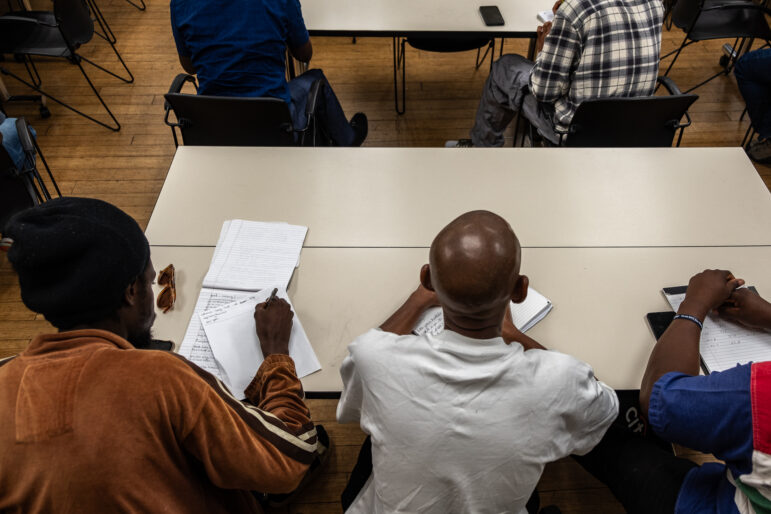
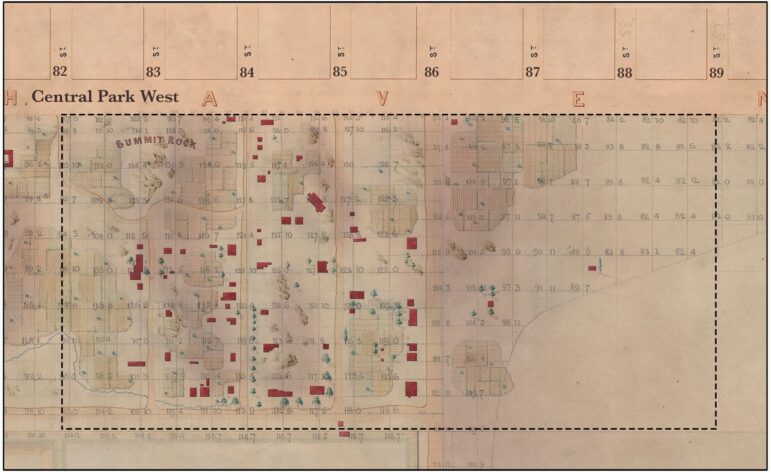


3 thoughts on “Jay Small, Organizer and Agitator: 1945-2016”
Tom, thank you for this. my condolences on the loss of your friend.
you captured Jay perfectly.
Bruce Bernstein
I am very sorry to hear it, and my sympathy on the loss of your friend. Jay was in my Revson Fellowship cohort at Columbia University, and he was truly a vocal and endearing presence — Tom Robbins describes Jay well.
My thoughts are with his family and friends.
J Klein Rosenthal
Jay was simply the best. I am sorry that I didn’t learn of his death until today. When I was starting out at the Supportive Housing Network of New York (originally called the SRO Providers Group), Jay took me under his wing and taught me much about coalition building, housing advocacy and NYC politics. I’ll never forget his great sense of humor, generosity and passion for making the world a better place.
Thanks, Jay, for mentoring me and countless others, and for bringing justice and hope to so many New Yorkers. RIP, my friend.